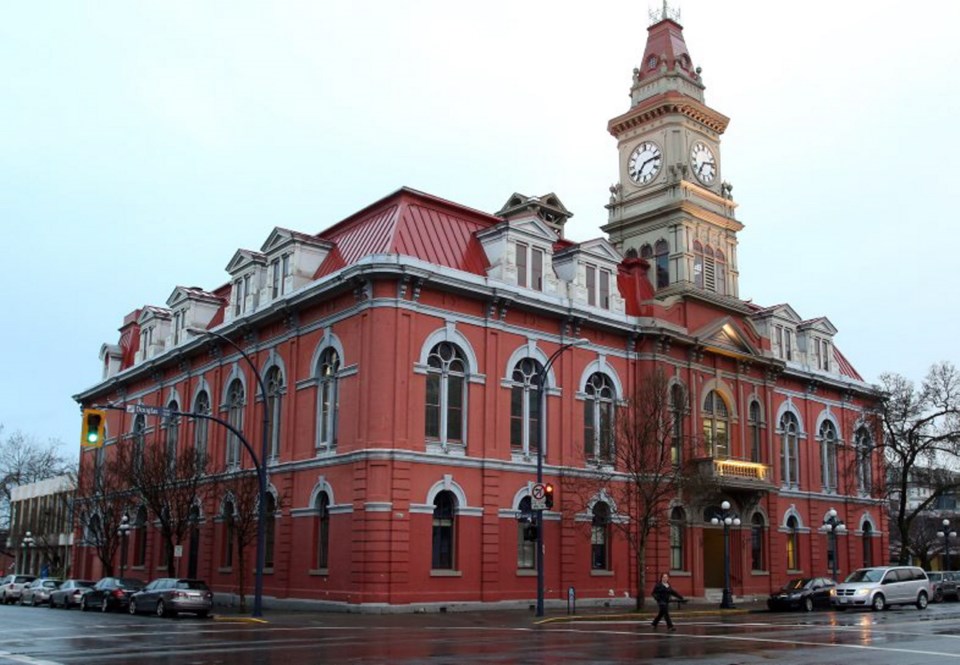Victoria city council took action against so-called “ghost hotels” on several fronts Thursday, changing the landscape for condo owners and others who rent out suites and houses through online platforms such as Airbnb.
Changes disallowing short-term rentals of less than 30 days in transient zones — a zoning that permits hotels, motels, and bed and breakfasts and covers much of the downtown — were approved by councillors after a public hearing Thursday night.
Condo units now being operated as short-term rentals will be grandfathered in, but will lose that status if not operated as a short-term rental for a six-month period. Short-term rentals will not be allowed in new developments in the transient zones.
Earlier in the day, councillors, sitting as committee of the whole, endorsed a new regulatory regime requiring operators of short-term rental units to pay licensing fees of either $200 or $2,500 depending on the type of unit.
The regulations will:
• permit short-term rentals in one or two rooms in all principal residences (the place where an individual usually lives and conducts their daily affairs).
• require all short-term rental operators to obtain a business licence.
• require operators to comply with requirements such as displaying a business licence number in all advertisements and adhering to all city bylaws, including noise and nuisance bylaws.
City staff estimate there are about 1,500 “unique listings” — entire units, and private and shared rooms — being used as short-term rentals. The listings are concentrated around downtown, with some rentals being managed by commercial operators.
Last week in a closed session, councillors approved an enforcement strategy that will see more staff and a third-party agency hired to monitor platforms such as Airbnb to track non-compliant units.
At the suggestion of Coun. Geoff Young, the city will ask the province for suites, condo units and houses being used for short-term rentals to be classified as commercial by the B.C. Assessment Authority. The move would essentially triple property taxes on those units.
At a standing-room-only public hearing on Thursday night, councillors heard from people on both sides of the zoning change — from service-industry workers who said they can no longer find affordable rentals to people who have carved out niche businesses managing short-term rentals.
“Many parts of our housing crisis are complicated, but not all,” said Chris Watson, of the Hotel Association of Greater Victoria. “One condo operating as an Airbnb means one or two people without a home. It’s as straightforward as that.”
But others saw it differently. Liza Rogers, founder of the Women’s Real Estate Network, said the city has to recognize that platforms such as Airbnb and VRBO are serving the global market, of which the city is a part.
“The affordable housing crisis should not be the burden of the individual homeowner or the mom-and-pop or small-time investor,” Rogers said.
Coun. Ben Isitt said that given the housing crisis, the units are needed for housing.
“These buildings were built, approved in this chamber, with people believing they were going to be ordinary residential condominium buildings, and now we’ve found these buildings have evolved into something very different,” he said, adding council has also heard about the negative impacts on some people living in those buildings.
Young said he has approved construction of many condo buildings over the years. “I can tell you that during all those years, I thought I was approving places for people to live, not hotel rooms.”
Coun. Jeremy Loveday said the zoning change is a small piece of the puzzle in solving the housing crisis.
Only Coun. Marianne Alto was opposed. “I remain unconvinced that this very broad, heavy brush is the right way to achieve the goals that we’ve all set out,” she said. “I think there is a bit more nuance required, so I will not be supporting this, this evening.”
Mayor Lisa Helps and Coun. Pam Madoff recused themselves to avoid perception of conflict. Coun. Margaret Lucas was absent.



